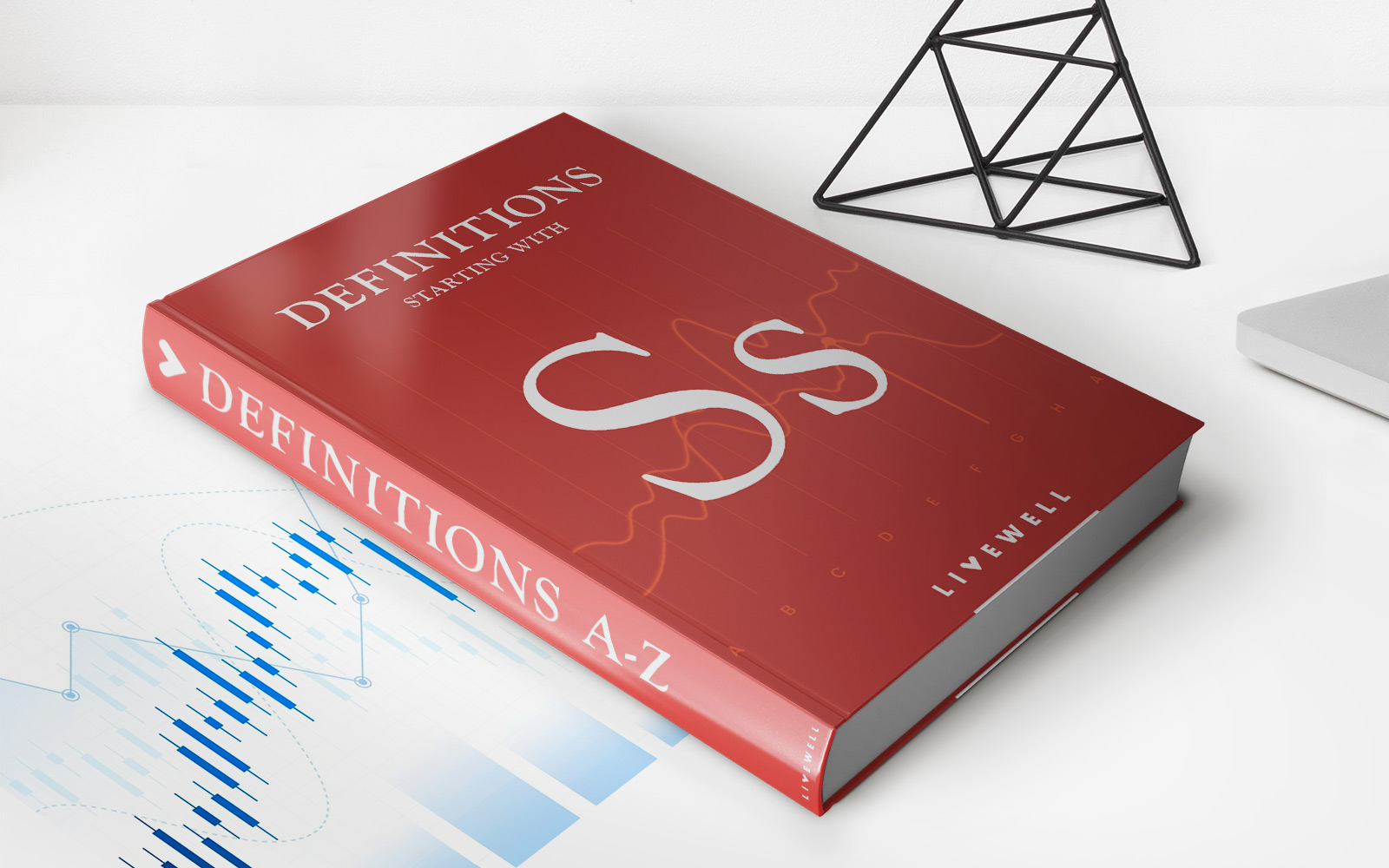Home>Finance>How Much More Is Insurance For A Rebuilt Title?


Finance
How Much More Is Insurance For A Rebuilt Title?
Published: November 15, 2023
Find out how much more you can expect to pay for insurance with a rebuilt title. Get the latest finance tips and advice on our website.
(Many of the links in this article redirect to a specific reviewed product. Your purchase of these products through affiliate links helps to generate commission for LiveWell, at no extra cost. Learn more)
Table of Contents
Introduction
When it comes to purchasing a vehicle, most buyers rely on a clean title, indicating that the vehicle has not been involved in any significant accidents or damage. However, some vehicles carry a different type of title known as a rebuilt title. These vehicles have undergone extensive repairs and have been deemed roadworthy once again. While it may be a viable option for those looking to save money on a vehicle purchase, it’s essential to understand the implications of owning a vehicle with a rebuilt title, especially when it comes to insurance.
Insurance companies assess risk factors when determining the premiums for an insured vehicle. Rebuilt titles pose unique challenges, as insurance providers view them as higher risk due to their history of significant damage. As a result, individuals with rebuilt title vehicles often experience increased insurance rates compared to those with vehicles holding clean titles.
Understanding the factors influencing insurance rates for rebuilt titles and knowing your options can help you make informed decisions to mitigate the potential financial impact. In this article, we will explore the various factors affecting insurance premiums for rebuilt titles, discuss the implications of these increased rates, and provide tips for finding affordable insurance options.
Understanding Rebuilt Titles
A rebuilt title is a type of vehicle title that is issued to a vehicle that was previously salvaged due to significant damage or theft. When a vehicle is deemed a total loss by the insurance company, meaning the cost of repairs exceeds a certain percentage of the vehicle’s value, it is given a salvage title. However, once the vehicle is repaired and meets the necessary safety requirements, it can be issued a rebuilt title.
The process of obtaining a rebuilt title varies by state, but generally, it involves a thorough inspection by a certified mechanic or a designated government agency. This inspection ensures that the vehicle has been adequately repaired and meets all safety standards. Once the inspection is complete, the vehicle is given a rebuilt title, indicating that it has undergone significant repairs and is considered roadworthy.
It’s important to note that a rebuilt title significantly affects the value and perception of a vehicle. The market value of a vehicle with a rebuilt title is usually lower compared to a similar vehicle with a clean title. This is due to the stigma associated with rebuilt titles and the potential for hidden or ongoing issues as a result of the previous significant damage.
Additionally, it’s crucial to understand that each state has its own regulations regarding rebuilt titles. Some states have stricter requirements and may impose additional inspections before issuing a rebuilt title. It’s advisable to check with your local Department of Motor Vehicles or equivalent agency to understand the specific rules and regulations in your state.
Now that we have a general understanding of what rebuilt titles are, let’s delve into the factors that influence insurance rates for vehicles with rebuilt titles.
Factors Affecting Insurance Rates for Rebuilt Titles
Insurance companies assess the risk associated with insuring a vehicle with a rebuilt title based on several key factors. These factors influence the insurance rates for vehicles with rebuilt titles and can result in higher premiums compared to vehicles with clean titles. Let’s explore these factors in more detail:
- Vehicle History: The extent and nature of the damage that led to the salvage title play a significant role in determining insurance rates. If the vehicle had severe structural damage or suffered from flood or fire damage, it carries greater risk and may result in higher insurance premiums.
- Repair Quality: The quality of repairs performed on a vehicle with a rebuilt title is crucial. Insurance companies evaluate the repairs to ensure that they were done properly and meet safety standards. If the repairs are deemed substandard or insufficient, it may lead to higher insurance rates or even refusal of coverage.
- Vehicle Inspection: Most states require a thorough inspection of vehicles with rebuilt titles before they can be registered and insured. The inspection ensures that the vehicle meets safety standards and is roadworthy. The results of this inspection can impact insurance rates, as a vehicle that passes a rigorous inspection is considered less risky to insure.
- Market Value: Since vehicles with rebuilt titles typically have a lower market value than those with clean titles, insurance companies take this into account when determining rates. The lower value reduces the potential payout in the event of a claim, resulting in lower premiums compared to a similar vehicle with a clean title.
- Geographical Location: Insurance rates vary based on the location where the vehicle will be primarily driven and parked. Factors such as crime rates, accident statistics, and extreme weather conditions can impact insurance premiums. If you live in an area prone to theft or accidents, you can expect higher rates for your rebuilt title vehicle.
These factors collectively contribute to the increased insurance rates for vehicles with rebuilt titles. Understanding these influences can help you better navigate the challenges associated with finding affordable insurance coverage for your rebuilt title vehicle. In the next section, we will explore the implications of these increased rates and discuss insurance options available for vehicles with rebuilt titles.
Increased Insurance Premiums for Rebuilt Titles
When insuring a vehicle with a rebuilt title, it’s important to be aware that you can expect to pay higher insurance premiums compared to vehicles with clean titles. This is primarily due to the perceived increased risk associated with rebuilt title vehicles. Let’s explore the reasons behind the increased insurance rates for vehicles with rebuilt titles:
Higher Risk: Insurance companies consider vehicles with rebuilt titles to be riskier to insure than those with clean titles. These vehicles have a history of significant damage or loss, which increases the likelihood of future issues or potential hidden problems. As a result, insurance providers factor in this increased risk and adjust their premiums accordingly.
Repair Costs: If an accident were to occur involving a vehicle with a rebuilt title, the cost of repairs can be higher compared to a similar accident involving a vehicle with a clean title. This is due to the potential complications arising from past damage and the need for specialized parts or repairs to address any issues related to the vehicle’s previous history. The higher repair costs contribute to the increased insurance premiums for rebuilt title vehicles.
Limited Coverage Options: Some insurance companies may be hesitant to provide coverage for rebuilt title vehicles, limiting your options and potentially leading to higher premiums. The perceived higher risk associated with these vehicles may cause some insurers to either offer limited coverage or charge higher rates to offset the potential claims expenses.
Additional Inspections: As mentioned earlier, most states require thorough inspections before issuing a rebuilt title. Insurance companies may also conduct their own additional inspections to assess the vehicle’s quality of repairs and ensure it meets safety standards. These extra inspections can lead to higher underwriting costs for the insurance provider, which may be passed on to the policyholder in the form of increased premiums.
While the increased insurance premiums for rebuilt title vehicles can be a disadvantage to owners, it’s essential to understand that the rates can vary between insurance providers. Shopping around and obtaining multiple quotes can help you find more affordable options. In the next section, we will discuss the insurance options available for vehicles with rebuilt titles.
Insurance Options for Rebuilt Titles
Insuring a vehicle with a rebuilt title may pose some challenges, but there are insurance options available for owners of these vehicles. It’s important to explore these options to ensure that you have adequate coverage for your rebuilt title vehicle. Here are some insurance options to consider:
Standard Insurance Companies: While some insurance companies may be hesitant to provide coverage for rebuilt title vehicles, others are more open to insuring these vehicles. It’s important to shop around and obtain quotes from multiple insurance providers. Some companies specialize in insuring vehicles with rebuilt titles and may offer competitive rates and coverage options tailored to your needs.
Specialty Insurance Companies: Specialty insurance companies cater specifically to vehicles with unique or challenging title histories, including those with rebuilt titles. These companies have expertise in assessing the risk associated with these vehicles and can provide coverage options suited to the specific needs of owners of rebuilt title vehicles. Working with a specialty insurance company can provide peace of mind knowing that you have insurance tailored to your vehicle’s situation.
State-Sponsored Programs: In some states, there are programs that offer insurance coverage specifically for vehicles with rebuilt titles. These programs are often designed to provide affordable coverage options to owners of rebuilt title vehicles who may have difficulty finding insurance elsewhere. It’s worthwhile to inquire with your local Department of Motor Vehicles or insurance regulatory authority to determine if such programs are available in your state.
Comprehensive Coverage: It’s advisable to consider obtaining comprehensive coverage for your rebuilt title vehicle. Comprehensive coverage protects against theft, vandalism, and damage caused by factors other than collision, such as storms or natural disasters. While comprehensive coverage may increase your premiums, it provides comprehensive protection for your vehicle, which is especially important for vehicles with rebuilt titles.
Usage-Based Insurance: Some insurance providers offer usage-based insurance programs that can help lower premiums for rebuilt title vehicles. These programs monitor driving behavior, such as mileage, speed, and braking habits, and adjust premiums accordingly. If you are a safe and responsible driver, usage-based insurance programs can help reduce your insurance costs for your rebuilt title vehicle.
Remember, when choosing an insurance option for your rebuilt title vehicle, it’s essential to carefully review the coverage limits, deductibles, and exclusions to ensure that you have appropriate protection. Additionally, maintaining a clean driving record and taking steps to improve the safety and security of your vehicle can also lower your insurance premiums. In the next section, we will provide some helpful tips for finding affordable insurance for rebuilt titles.
Tips for Finding Affordable Insurance for Rebuilt Titles
While insuring a vehicle with a rebuilt title may involve higher premiums, there are strategies you can employ to find more affordable insurance options. Consider the following tips when searching for insurance coverage for your rebuilt title vehicle:
Shop Around: Take the time to request quotes from multiple insurance providers. Each company has its own underwriting guidelines and rates for rebuilt title vehicles. By comparing quotes, you can find the most competitive and affordable options available to you.
Consider Coverage Variables: Adjusting coverage variables can help lower insurance premiums. For example, you can choose a higher deductible, which is the amount you pay out-of-pocket before your insurance coverage kicks in. A higher deductible generally results in lower insurance premiums. However, it’s important to ensure that you can comfortably afford the deductible in the event of a claim.
Improve Vehicle Safety and Security: Install anti-theft devices and safety features in your vehicle. This can include alarms, immobilizers, or GPS tracking systems. By taking precautions to protect your vehicle, you can potentially lower your insurance rates.
Maintain a Clean Driving Record: Your driving history plays a significant role in determining insurance premiums. Avoiding accidents and traffic violations can help keep your insurance rates in check. Safe driving practices demonstrate responsible behavior and reduce the perceived risk associated with insuring a rebuilt title vehicle.
Consider Bundling: If you have other insurance policies, such as homeowners or renters insurance, consider bundling them with your rebuilt title vehicle insurance. Many insurance companies offer discounts for bundling multiple policies, which can lead to overall cost savings.
Evaluate Insurance Options Annually: As time goes on, and you maintain a clean driving record and demonstrate responsible vehicle ownership, your insurance premiums may decrease. It’s important to evaluate your insurance options annually to ensure you’re getting the most competitive rates available.
Seek Professional Advice: Consulting with an insurance agent or broker who specializes in insuring vehicles with rebuilt titles can provide valuable guidance. They can help navigate the complexities of finding affordable insurance options that meet your specific needs.
Remember, the key to finding affordable insurance for your rebuilt title vehicle is to be proactive, shop around, and explore different coverage options. By taking these steps, you can find a policy that offers the right balance of coverage and affordability.
Now that we have discussed various tips for finding affordable insurance for rebuilt titles, let’s summarize the key points in the concluding section.
Conclusion
Insuring a vehicle with a rebuilt title may come with its challenges, including increased insurance premiums compared to vehicles with clean titles. However, with the right knowledge and strategies, it’s possible to find affordable insurance options for your rebuilt title vehicle.
Understanding the factors that influence insurance rates for rebuilt titles, such as vehicle history, repair quality, and market value, is essential in determining appropriate coverage and pricing. Exploring different insurance options, including standard insurance companies, specialty insurers, and state-sponsored programs, can help you find the best coverage for your needs.
Implementing tips such as shopping around for quotes, considering coverage variables, improving vehicle safety and security, maintaining a clean driving record, and bundling insurance policies can all help lower your insurance premiums for a rebuilt title vehicle.
Remember, finding affordable insurance for your rebuilt title vehicle is not only about saving money; it’s about ensuring that you have adequate coverage that provides peace of mind. It’s crucial to strike a balance between affordability and comprehensive protection.
As always, seek professional advice from insurance experts who specialize in insuring vehicles with rebuilt titles. They can guide you through the process, help you understand the complexities, and ensure that you have the right coverage for your unique situation.
By being proactive, exploring different options, and staying informed, you can find affordable insurance for your rebuilt title vehicle without compromising on protection. Safeguard your investment and drive with confidence, knowing that you have the coverage you need for your rebuilt title vehicle.














